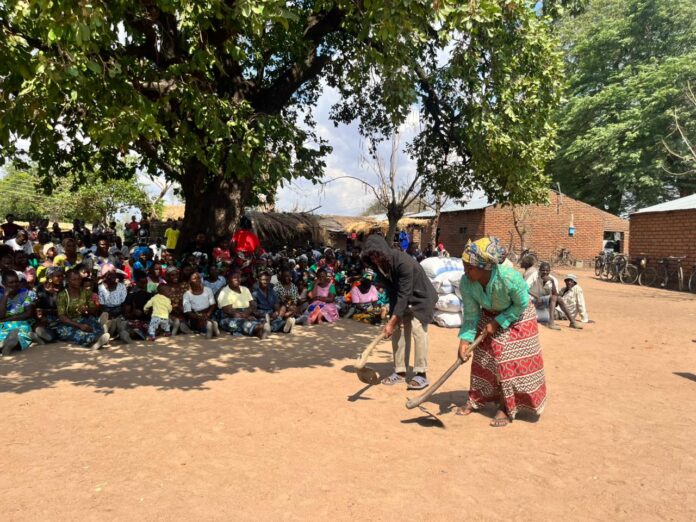Malawi is proud to host the International Supervisory Board (ISB) of Solidaridad, marking a historic moment in Solidaridad’s 5 years of operation in Malawi. Selected among over 40 countries across Africa, Asia, and Latin America, Malawi is recognized as a good example of our work in Southern Africa to transform supply chains into inclusive, resilient systems.
A Global Network Converges on Malawi
Solidaridad operates across continents to support small-scale farmers, workers, and miners while addressing global supply chain challenges. In Africa, Asia, and Latin America, Solidaridad implements on-the-ground projects to foster sustainability, while in Europe, North America, China, and Japan, it builds corporate and donor relationships to promote sustainable product uptake. The ISB visit – which takes place from 7-11 December 2024 – reflects Malawi’s growing significance in this expansive network.
“This visit underscores Malawi’s role as a leader in sustainable agricultural practices. Through our impactful projects here, we have demonstrated that smallholder farmers are not just beneficiaries but key players in transforming global supply chains into equitable systems,” said Shungu Kanyemba, Managing Director of Solidaridad Southern Africa.
Highlighting Solidaridad’s Work in Malawi
Solidaridad’s work in Malawi started with the transformative initiative called the Practice for Change (PfC) Soybean Project, which empowered over 8,500 smallholder farmers with improved farming techniques. It is continuing with the RECLAIM Sustainability! (RS!) Tea Initiative which examines policies in the sector. There is also the Pathways to Prosperity (P2P) Cotton Project, a groundbreaking initiative that integrates financial services, seed multiplication, and market access for farmers.
Key achievements include:
- Training over 2,400 farmers in Good Agricultural Practices (GAP) through the PfC Soybean Project.
- Supporting the Cotton Sector to produce 160 tons of cotton seed which has been distributed to 40,000 farmers.
- Establishing 15 demonstration plots under the P2P Cotton Project to showcase sustainable cotton farming practices.
- Launching a digital payment system to reduce risks in the cotton sector, benefiting over 15,000 registered farmers.
- Giving over 80,000 tea seedlings to more than 10,000 tea farmers in Malawi.
- Supporting the development of occupational safety and health policies in the tea sector and policies that promote equitable gender practices.
Andre de Freitas, Executive Director of the Solidaridad Network, emphasized the strategic importance of Malawi’s contributions: “Malawi has some strong examples of agricultural practice and work on sector transformation that are innovative, resilient and have a direct and positive impact on the lives of small-scale farmers. Some of the projects here have the potential to be scaled globally. This visit allows the International Supervisory Board to witness firsthand the specific features of Solidaridad’s work in Southern Africa.”
Malawi’s Moment of Recognition
The selection of Malawi as the host for this visit highlights its achievements in the Solidaridad Network, focused on:
- Promoting good practices among farmers and workers.
- Establishing supportive business systems to enhance productivity and income.
- Creating an enabling policy environment for sustainability.
- Encouraging increased market uptake of sustainable products.
“The work of Solidaridad in Malawi contains some good examples of what can be achieved through partnerships, innovation, and community-driven solutions. These projects are exemplary for our work regionally, ensuring that smallholder farmers remain at the heart of sustainable supply chains,” concludes Humphrey Nxumalo, Solidaridad Southern Africa’s Head of Programmes.








